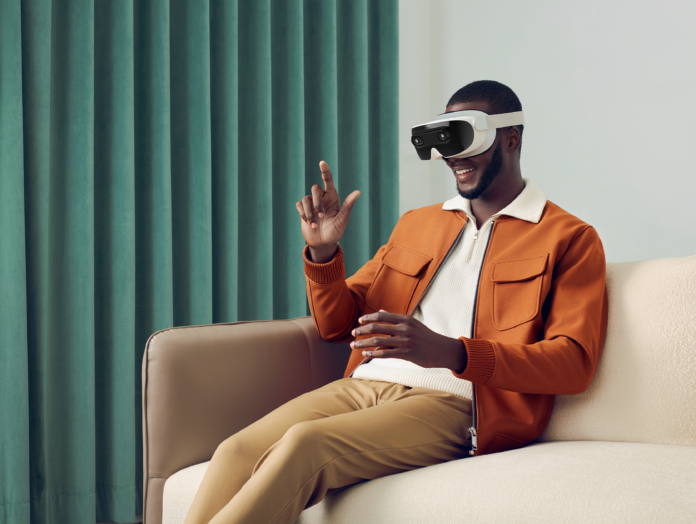By: Nick Gambino
Despite the wealth of games and other interactive content released over the past few years, we have yet to see the true social capabilities of VR. XRSpace looks to change that with its new XRSpace Mova VR headset.
The man behind XRSpace is former HTC CEO and co-founder Peter Chou, who is widely regarded as a visionary and essential player in the early success of HTC, especially in their role as Android smartphone creators. Though he left the company a few years back, he hasn’t strayed from the world of VR. We’ve heard rumblings from his company, XRSpace, for the past three years, and now we’re gaining our first real insight into the project.
“Our vision is to bring people together, no matter where they are in the world,” Chou told Digital Trends. “We are creating the social reality of the future, a world where people interact both physically and virtually, in a way that is more familiar and resembles our own human interaction. Our goal is to take this to the masses, not just gamers or early adopters.”
The XRSpace Mova VR headset is touted as the smallest and lightest headset to hit market thus far. And while we’re quick to label it “VR,” Chou prefers the moniker “XR.” This lightweight design is essential in allowing the Mova to fulfill its main purpose as a social VR experience. If you’re going to use it for more than quick gaming sessions, it’s got to be comfortable and easy to handle.
While the Mova comes with a gaming controller, the company intends for most interactions to be conducted with hand motions or gestures, which is possible with the hand-tracking feature.
XRSpace has created a world in which you’ll be able to interact with friends and meet new people. That world is called “Manova.” You’ll be able to walk around and meet up in bars and other Manova spaces as your avatar. This avatar allows you to interact with others through high fives, handshakes and other motions. These full-body avatars and their ability to interact with the environment and others in a reality-based manner is essential to the VR platform.
“Today, one of the reasons why VR is not that exciting, is not getting that level of immersiveness, is that it’s lacking very good digital avatars,” Chou explained to Engadget. “Today, most of the digital avatars are cartoonish and half body, really not something that we can call your ‘digital self.’ So what we really want to do is let people really, actually recognize this is you.”
The 5G VR headset is set to ship later this year and will cost a fairly reasonable $599.









